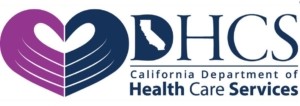Why Dual Diagnosis Matters When Creating an Addiction Treatment Plan
Table of Contents
Dual Diagnosis and Its Importance in an Addiction Treatment Plan.
There are several factors that can cause an addiction. One of them is when the addict is affected by another mental disorder, known as dual diagnosis.
The interaction between their mental disorder and addiction requires that both be treated in an addiction treatment plan to avoid the symptoms of their untreated mental disorder from leading to substance abuse again.
Dual diagnosis, also known as co-occurring disorders and comorbidity, is very common among drug addicts. Research by the National Institute on Drug Abuse (NIDA) suggests that as many as 43 percent of people addicted to opioid pain killers have been either diagnosed with another mental disorder or show the signs of other mental disorders.
When it comes to an effective treatment plan, the possibility of another mental disorder must be explored. To achieve this, a thorough assessment is required, such as the assessment you will receive upon entering a treatment program at Dana Point Rehab Campus.
If you or a loved one is in need of help with addiction, call 949.569.7517 today to speak with a treatment specialist.
The Link Between Mental Disorders and Addiction and Its Importance in an Addiction Treatment Plan
Untreated mental disorders cause symptoms that are often very difficult to deal with.
For example, a person with a social anxiety disorder may find that the only way they can be at a social event is to drink alcohol to relieve their symptoms. However, as use of a substance continues as a means to treat their symptoms in the short term, eventually the effects of an addiction compound their symptoms.
Another important aspect of co-occurring disorders is that addiction shares overlapping genetic vulnerabilities. In essence, the way that your brain responds to stress and pleasure is mostly genetic and may open you up to mental disorders, such as a depression that runs in the family.
These vulnerabilities can overlap with the same things that increase the risk of forming an addiction. The involvement of the same brain regions such as drugs that work on dopamine and mental disorders that affect the dopamine centers of the brain such as depression can have a cascading effect.
Since there is a clear link between substance use disorder (addiction) and other mental disorders, the need for dual diagnosis treatment in an addiction treatment plan is essential. If just the addiction was treated, there is a high chance that the person will turn to drugs or alcohol again when they can no longer deal with their symptoms.
In order to successfully execute an addiction treatment plan, treatment must be offered for both the addiction and the co-occurring mental disorder simultaneously.
It is only through this congruent addiction treatment plan with the use of behavioral therapy, medications where needed, and a plan to prevent relapse that long-term sobriety can be achieved.
Common Mental Disorders with Addiction
There are several mental disorders that often accompany addictions to drugs and alcohol. Among the most common are as follows:
• Bipolar: It is estimated that around half of the people with bipolar also have problems with substance abuse. Self-medicating the symptoms of bipolar with alcohol or drugs such as cocaine can provide short term relief during manic episodes.
• Depression: Alcohol and drugs offer an escape from depression for many people, even though the symptoms of depression get worse afterward.
• Post-traumatic stress disorder (PTSD): Alcohol and opioids are often abused by people with PTSD. Veterans are particularly at risk and often turn to alcohol as a way to self-medicate.
• Obsessive-compulsive disorder (OCD): OCD is another mental disorder that, if untreated, can cause people to turn to alcohol and drugs to relieve their anxiety and depression.
At Dana Point Rehab Campus, we provide a whole-patient approach to treatment that can address all of the medical and mental health needs of a patient. Our drug treatment programs can help to break the perpetual cycle of substance abuse that occurs with another mental disorder.
To find help in Orange County, contact us at Dana Point Rehab Campus by dialing 949.569.7517 today to take advantage of the thorough assessment that helps our healthcare professionals to personalize a treatment program to suit your exact treatment needs.








